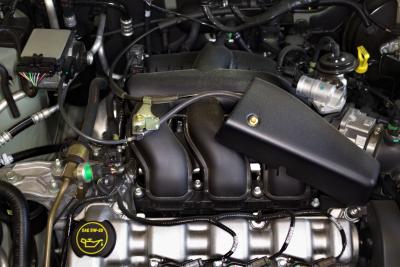
You know for certain that fuel prices have gone through the roof when even hot-rodders are talking about building engines for better economy. Among other parameters, an engine's bore/stroke ratio does have an impact on its fuel efficiency.
An engine's displacement is measured by multiplying its bore (the diameter of the engine's cylinders) and its stroke (the distance that the piston travels up and down in the cylinder).
An engine with a larger bore and shorter stroke has a high bore:stroke ratio while smaller bore engines are the opposite.
Large bores (like F1 motors) tend to rev very high with lots of horsepower, and long stroke engines are biased toward producing low RPM torque.
"Torque" is the amount of force an engine produces per RPM and is often an indicator of an engine's relative efficiency.
An engine that produces torque at low RPM tends to get better fuel economy than an engine with identical displacement that produces less torque. Hence, long stroke engines will tend to get better economy than large bore engines.